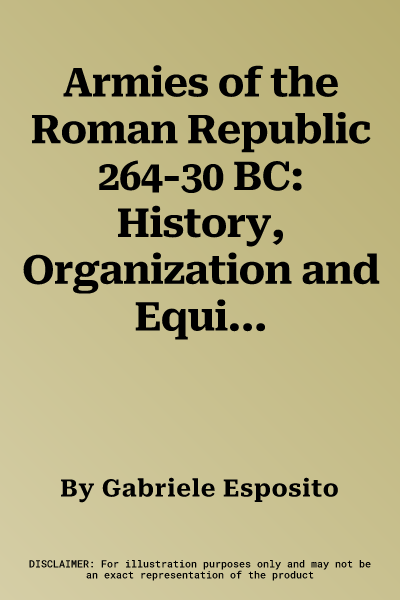The period covered in this book saw the Roman Republic face its greatest
military challenges. In 264 the Romans were pitted against the might of
Carthage in the first of the three Punic Wars, which would push Rome to
the brink but end with the destruction of this great rival city. In the
following two centuries they would clash repeatedly with the Gauls, this
recurrent threat finally overcome by Caesar's campaigns in Gaul. In this
period they defeated the Hellenistic Successor states, proud heirs to
the military legacy of Alexander the Great, a process completed by the
annexation of Egypt in 30 BC. These wars, and others, made the Romans
masters of all Western Europe and the whole Mediterranean basin, though
failure against the Parthians limited their ambitions in the East. The
Roman armies of this era were also employed against each other in the
vicious civil wars that marked the end of the Republican period.
Gabriele Esposito describes the tactics, organization, weapons and
equipment of the Roman forces involved in these wars. He shows how the
lessons of defeats and victories against such varied opponents in
far-flung theaters, as well as social changes, forced a process of
evolution and reforms that transformed Roman armies across this
turbulent period. As usual, his clear, accessible text is supported by
dozens of color images of replica weapons and equipment in use.

